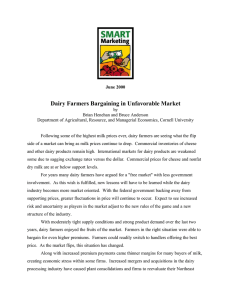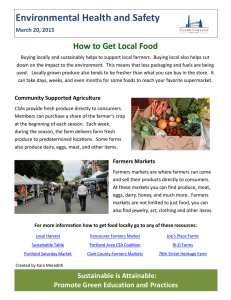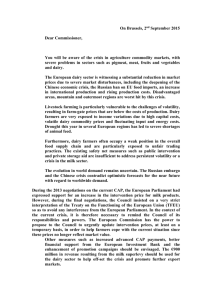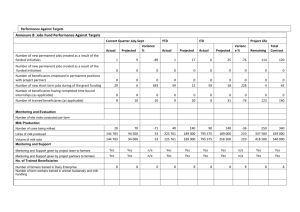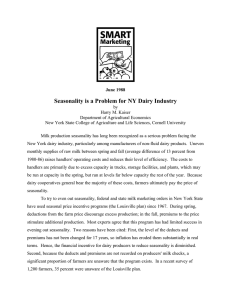Dairy Farmers Bargaining in Unfavorable Market
advertisement
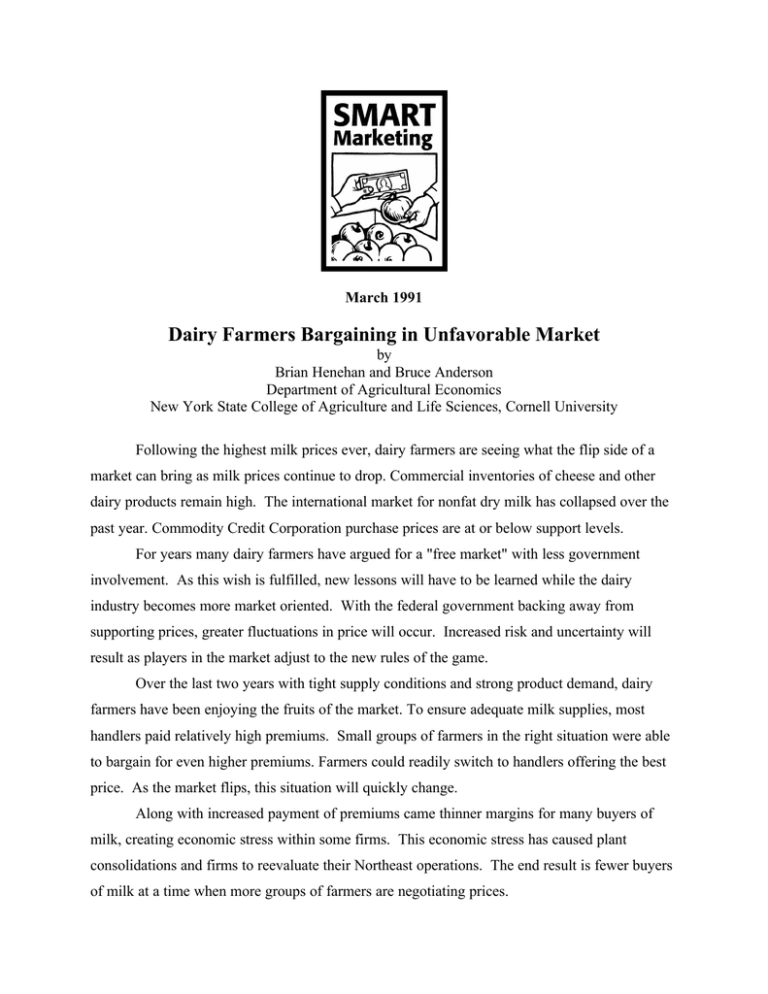
March 1991 Dairy Farmers Bargaining in Unfavorable Market by Brian Henehan and Bruce Anderson Department of Agricultural Economics New York State College of Agriculture and Life Sciences, Cornell University Following the highest milk prices ever, dairy farmers are seeing what the flip side of a market can bring as milk prices continue to drop. Commercial inventories of cheese and other dairy products remain high. The international market for nonfat dry milk has collapsed over the past year. Commodity Credit Corporation purchase prices are at or below support levels. For years many dairy farmers have argued for a "free market" with less government involvement. As this wish is fulfilled, new lessons will have to be learned while the dairy industry becomes more market oriented. With the federal government backing away from supporting prices, greater fluctuations in price will occur. Increased risk and uncertainty will result as players in the market adjust to the new rules of the game. Over the last two years with tight supply conditions and strong product demand, dairy farmers have been enjoying the fruits of the market. To ensure adequate milk supplies, most handlers paid relatively high premiums. Small groups of farmers in the right situation were able to bargain for even higher premiums. Farmers could readily switch to handlers offering the best price. As the market flips, this situation will quickly change. Along with increased payment of premiums came thinner margins for many buyers of milk, creating economic stress within some firms. This economic stress has caused plant consolidations and firms to reevaluate their Northeast operations. The end result is fewer buyers of milk at a time when more groups of farmers are negotiating prices. So what can farmers expect from the flip side of the market? • Having a secure market will become more important. • There will be strong downward pressure on premiums. • Opportunities to move from handler to handler will evaporate. • Some farmers will be dropped by some handlers. • Several plants will close or be consolidated. Under these market conditions, the opportunities for farmers to bargain for prices will change in the following ways: • The bargaining power of local bargaining groups will diminish. • Operating cooperatives will play a more important role in surplus markets. • Balancing facilities will experience increased utilization. • Market-wide bargaining groups, such as RCMA, will increase in importance. Dairy farmers might minimize detrimental effects from the shift to a more competitive market by taking the following actions: • Analyze the impact of changing market conditions on your marketing opportunities. • Reevaluate actual market power as individuals or small groups. • Sell to buyers with high market security. • Support market-wide bargaining groups. • If the market dictates, be proactive in dissolving ineffective small bargaining groups and seeking out organizations likely to have longevity and profitability. Smart marketing involves understanding and anticipating changing markets. Farmers who adjust to unfavorable market conditions by developing a long-range strategy will be in the best position when prices become more favorable.
